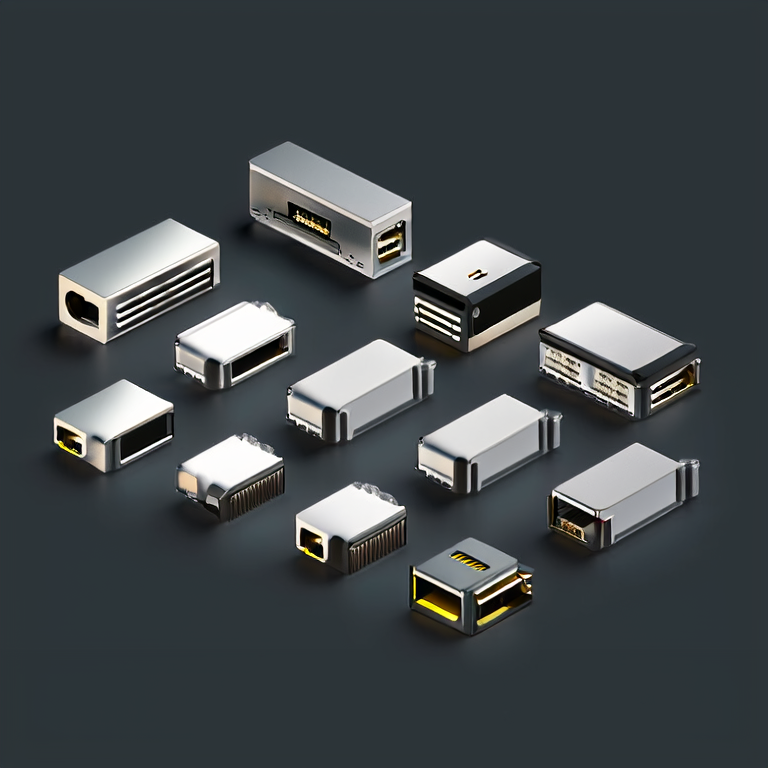- Home
- Products
+
- Connectors
+
- Box Header Connectors & Ejector Header Connectors
- Female Header Connectors
- Male Pin Header Connectors & Mini Jumper Connectors
- IC Socket / PLCC Socket / ZIF Socket Connectors
- Wire to Board Connectors & Wire to Wire Connectors
- IDC Connectors
- FFC / FPC Connectors
- Micro Match Connectors
- DIN41612 Connector
- D-Sub Connectors / D-SUB hood
- SIM & Micro SIM & Nano SIM Card Connectors
- Memory Card Connectors
- USB 2.0 / USB 3.0 / USB 3.1 / Type C / Micro USB / IEEE 1394 / Mini USB Connectors
- DVI Connectors & HDMI Connectors
- Y13 / Y17 /Y21 IP68 Waterproof Circular Connectors
- Circular Connectors
- SATA Connectors
- Audio Connectors
- Terminal Blocks
+
- PCB Terminal Block Rising Clamp
- PCB Terminal Block Wire Protector
- Pluggable Terminal Blocks
- Screwless-Spring terminal blocks
- Barrier Terminal Blocks
- Reflow Solder LCP Housing Terminal Blocks
- Fuse lighting terminal blocks
- Feed Through Terminal Blocks and Box
- Miniature Rail-mounted Terminal Blocks
- Insulated terminals
- Non-insulated terminals
- Solder terminals for PCB mount
- Switches +
- Crystals / Oscillators / Resonators +
- Transformers +
- Ethernet Connectors +
- RF Connectors +
- Sound sources +
- Latching Relay +
- Antenna +
- Connectors
+
- Cross Reference
- Solution
- About RHT
- FAQ
- Download
- News
- Contact Us +
Which are the types of connectors?
 Aug. 19, 2025
Aug. 19, 2025In an increasingly specialized market, customizable connectors have emerged as vital components for a diverse range of applications. Custom connectors allow for tailored solutions that meet specific operational needs, thereby solving significant pain points in various sectors including electronics, telecommunications, and automotive. The flexibility of tailored electrical connections not only enhances efficiency but also reduces operational downtime. For example, businesses that implement custom connectors can see a 25% reduction in installation time compared to using standard components. This article will explore the importance of custom connectors, their applications, and the reasons behind their rapid adoption in multiple industries.

What Are Custom Connectors?
Custom connectors are specialized electrical connectors designed to meet the unique demands of a particular application. Unlike standard connectors, which may not provide the ideal fit or functionality, custom connectors are engineered from the ground up, allowing for greater design flexibility. In industries like telecommunications, for instance, custom connectors can be developed to cope with unique environmental factors, ensuring consistent performance in diverse conditions.
From industry terms like “multi-pin connectors” to more advanced concepts such as “overmolding”, understanding the jargon can help navigate the complexities of custom connector selection and usage.
Application Scenarios: Where Are Custom Connectors Used?
Custom connectors find applications across several critical industries:
Telecommunications: In this sector, custom connectors are employed to optimize network performance and reliability. For instance, custom-designed multi-port connectors can handle greater data transmission rates with less signal interference.
Automotive: Modern vehicles increasingly rely on electronic systems. Custom connectors enable manufacturers to create vehicle-specific wiring harnesses, enhancing safety features and improving overall vehicle performance.
Medical Devices: In healthcare, custom connectors ensure devices meet stringent safety and performance standards, contributing to more reliable patient care.
Industrial Automation: In manufacturing operations, custom connectors simplify complex wiring requirements and reduce assembly times, contributing to more efficient production processes.
Advantages of Custom Connectors: Why Are They Important?
The significance of custom connectors lies in their numerous advantages:
Enhanced Efficiency: Custom connectors often lead to a reduction in manufacturing time, with potential decreases of up to 30% in assembly line times, thanks to their precise fit and functionality.
Improved Durability: Using materials tailored to withstand specific environmental conditions can prolong the lifespan of connectors, reducing the need for downtime, which can cost industries as much as $2 million per hour.
Tailored Solutions: Industries can benefit from unique designs that cater to specific needs, from shape to material composition, making the integration of devices smoother and more efficient.
Next Steps: Further Reading and Resources
If you\'re interested in exploring the world of custom connectors further, consider checking user guides or technical papers that delve deeper into specific applications and designs. Also, engaging with products from renowned brands like RHT can help you gain practical insights into implementing custom connectors in your projects.
FAQs
1. What materials are used in custom connectors?
Custom connectors can be made from various materials, including plastics, metals, and composites, chosen based on the requirements of the application.
2. Can I design my own connectors?
Yes, many manufacturers offer design services that allow you to create connectors tailored to your specific needs.
3. How do custom connectors impact overall project cost?
Although the initial investment may be higher, the long-term benefits—reduced downtime and enhanced efficiency—often outweigh the costs, leading to savings in the long run.
4. Are there environmental considerations in custom connectors?
Absolutely. Choosing eco-friendly materials and designs can contribute to sustainability goals while ensuring compliance with regulatory standards.
For additional understanding or hands-on trial of custom connectors, you can explore RHT’s range of specialized products tailored to meet various industrial demands. This comprehensive approach not only provides insights into your unique needs but also offers solutions that foster innovation and operational excellence.











